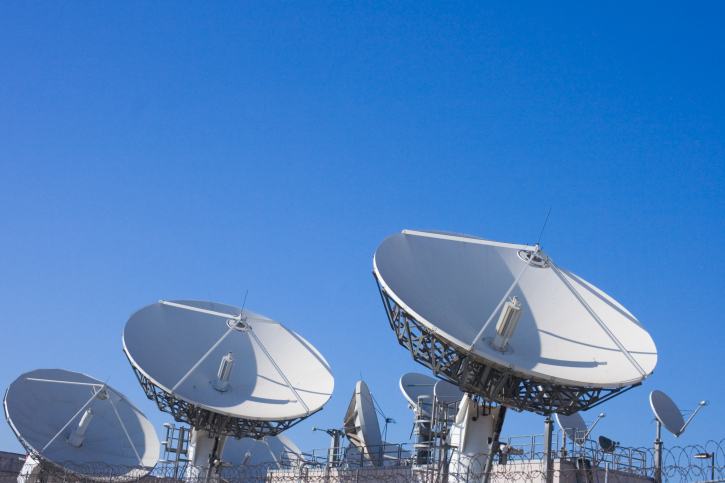Shares of DirecTV (NASDAQ: DTV) and Dish Network Corp. (NASDAQ: DISH) are both gaining on a Bloomberg TV report that Dish’s Charlie Ergen has approached DirecTV about a possible merger. While this is the sort of report that dreams are made of, the first thing that has to be considered is whether this would constitute a monopoly.
24/7 Wall St. has covered this topic previously. A classic monopoly is when only one major player remains in an industry, even if tiny competitors exist here and there. We propose that readers ask themselves, if the two satellite pay-TV providers were to become one in a merger, does that mean there is a monopoly in television access?
Rumors have been around of the possibility of a merger between these two companies for quite some time. It would have been a monopoly a decade ago. But now the cable giants are consolidating and cable television has competition from Internet giants and even telecom giants.
So, it sounds like a monopoly to combine the only two satellite providers if you just think about satellite pay-TV. But what about the remaining mediums for pay-TV in the mix? A report from Standard & Poor’s back in October said:
After more than a decade of speculation, rumors of a merger between major U.S. satellite TV providers DIRECTV and DISH Network Corp. have once again intensified with the companies’ recent open discussions of the possibility. The Federal Communications Commission (FCC) and Department of Justice (DOJ) blocked the companies’ attempt to merge in 2002 because of anti-trust concerns, many of which still exist.
S&P’s report pointed out that, unlike in 2002, the U.S. paid-TV market strains to add video subscribers, programming costs continue to rise and Dish struggles to define its wireless strategy. S&P even said at the time that it has received many inquiries from investors regarding how the credit ratings would be affected by a potential combination of the two. The ratings agency maintained at the time that it still believes that meaningful regulatory, ownership and cultural hurdles could preclude a merger from ever taking place.
With consolidation in traditional cable coming down to two or three major players, a satellite monopoly may not be quite what it seems compared to a decade ago. Comcast Corp. (NASDAQ: CMCSA) will be getting larger at the same time that AT&T Inc. (NYSE: T) and Verizon Communications Inc. (NYSE: VZ) are trying to grow their presence in the pay-TV space. Ditto for Google Inc. (NASDAQ: GOOG) and a host of others.
DirecTV shares were up 6.9%, with a $39.8 billion market cap, while Dish shares were up 5.5%, with a $28.3 billion market cap. Stay tuned.
Travel Cards Are Getting Too Good To Ignore (sponsored)
Credit card companies are pulling out all the stops, with the issuers are offering insane travel rewards and perks.
We’re talking huge sign-up bonuses, points on every purchase, and benefits like lounge access, travel credits, and free hotel nights. For travelers, these rewards can add up to thousands of dollars in flights, upgrades, and luxury experiences every year.
It’s like getting paid to travel — and it’s available to qualified borrowers who know where to look.
We’ve rounded up some of the best travel credit cards on the market. Click here to see the list. Don’t miss these offers — they won’t be this good forever.
Thank you for reading! Have some feedback for us?
Contact the 24/7 Wall St. editorial team.




